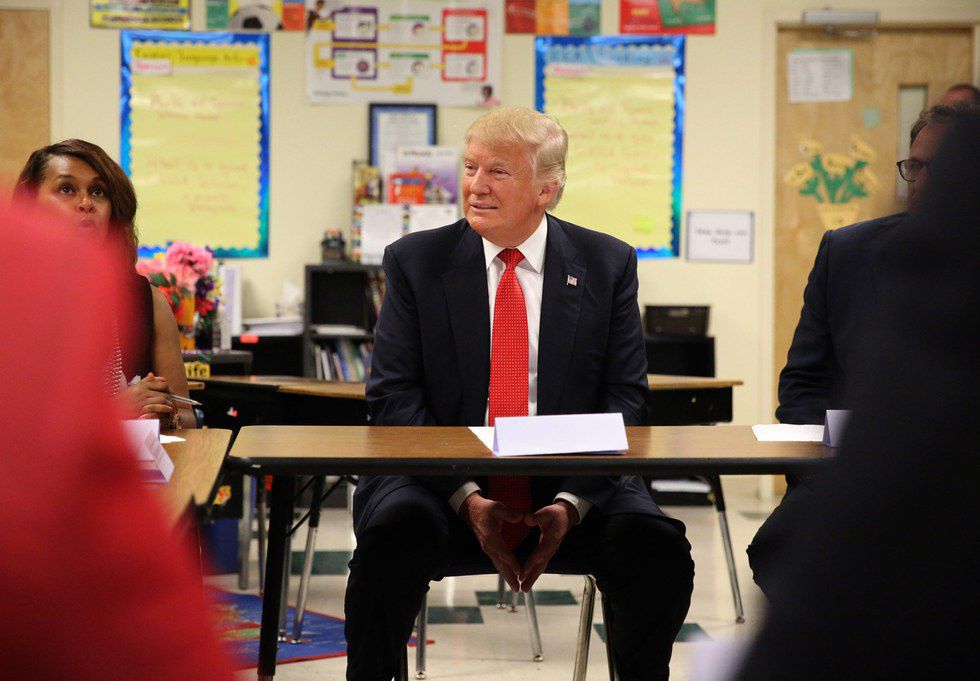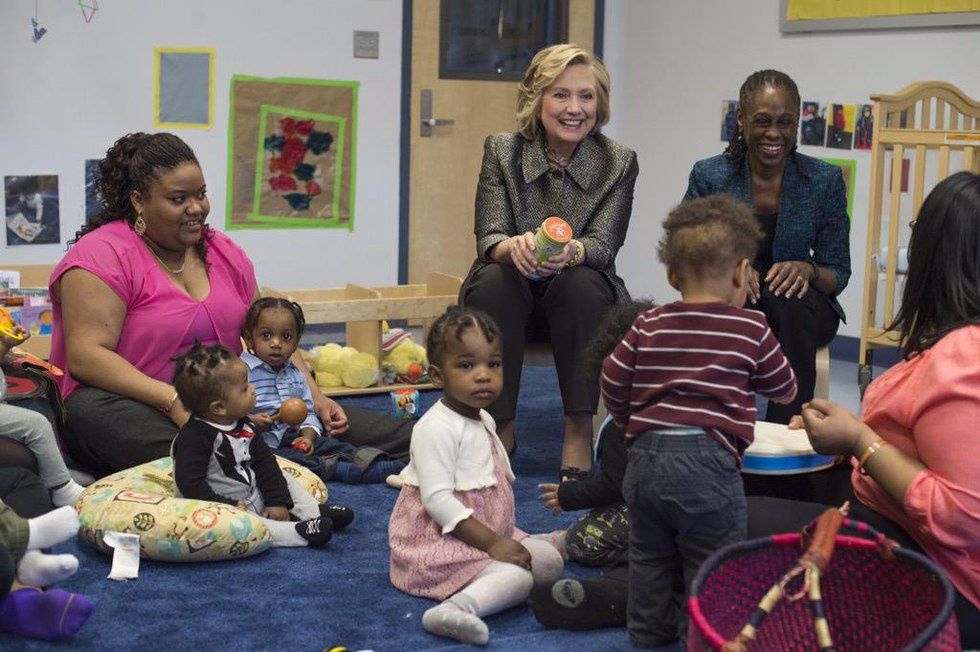Last week, I had an epiphany:
I have no idea what the education policies of the presidential candidates are.
Like, I had no clue. There might have been a vague understanding of Hillary Clinton’s plan to eliminate college tuition for middle class families, but besides that, I had no idea what either her or Donald Trump thought about preschool, K-12 education, or the growing diversity amongst U.S. schools.
Thing is, I wasn’t alone. Speaking to my roommate and a couple of other friends elicited the same combination of loose conjecture and circumlocution that had been going on in my own head, so I decided to take a gander into the campaigns of our lovely, totally uncontroversial candidates and uncover the education policy gem.
If you are just as clueless as I was, here’s a brief overview of what’s potentially going to happen in the next couple of years with our education system, whether it bleeds blue or red.
Mr. Donald Trump
Mr. Trump has provided very scant information on his plan for education throughout his campaign trail. Most of what I discovered came very recently, as in a month-ago-recently, and Mr. Trump’s fifty-two second video on the subject consisted simply of an emphatic call to make, very generally so, education better than it is now. But here is what we do know:
- $20 billion are going to be taken out of the federal budget and redistributed to the states in the form of block grants. Trump wants to use this money to help kids stuck in poverty, so that they may have federally provided sums of money to pay for a school of their choice, whether it be private, charter, or public. Just exactly where he’s pulling the money from, however, could be problematic.
- Common Core will be completely eliminated. Trump has repeatedly called it a “disaster,” but has not provided a specific alternative. Additionally, he wants to either cuts funds from of completely eliminate the Department of Education in an effort to localize education.
- Trump is very critical of how the federal government makes money off of interest paid on federally subsidized student loans, and seeks to change that.
Mrs. Hillary Clinton
Mrs. Clinton has a much more specific plan when it comes to preschool and college, but she lacks specificity when concerning her policies towards K-12 education. Additionally, she has to tip-toe with her policies, because there is a lot of dissention within the Democratic party itself about how to best approach many facets of our education system. But here’s what I pulled up:
- Funding for computer science classes and programs is going to be provided to school districts so that, ideally, every kid in America is prepared the growing job market in computer science.
- Universal preschool in the next ten years. Not entirely sure if she knows how.
- $2 billion will be allocated to schools in order to dismantle the so called “school-to-prison pipeline,” where there exists a connection between improper disciplinary measures and the amount of kids who end up in prison. Primarily targeted towards poorer, more diverse communities, Clinton wants to reform school disturbance laws and change the way schools handle troublemakers. But this policy is also based on getting kids prepared to show up on time to work as well, apparently.
- The Early Head StartProgram, coupled by the Early Head Start-Child Care Program, will receive a doubling in investments from Clinton’s administration. More money into these programs will provide more disadvantaged kids exactly what the titles promises— a head start into their educational careers by providing a nurturing environment for early self-development.
- Free college tuition for all public university students whose families make less than $125,000 a year, which would cover around 84% of American families.
- BUT the whole promise for debt-free college graduation, which Clinton incorporated into her campaign when she losing young voters to Bernie Sanders in the primaries, is mostly likely not feasible, since her plan does not cover room and board, books, or supplies.
- Clinton openly supports charter schools despite dissension from her party and many leftist teachers.
Yeah, I know. Trump basically has like 3% of a concrete policy down and Clinton says a lot of great stuff but dissension doesn’t say how she’s going to achieve it all. It’s frustrating, no matter your political views. But hey, now you’re a little bit more informed, a little bit more wary, and a little bit more galvanized— I hope— to head over to the polls.
*** If you want a super simple but pretty well-laid out comparison, check out this comparison site.








 Energetic dance performance under the spotlight.
Energetic dance performance under the spotlight. Taylor Swift in a purple coat, captivating the crowd on stage.
Taylor Swift in a purple coat, captivating the crowd on stage. Taylor Swift shines on stage in a sparkling outfit and boots.
Taylor Swift shines on stage in a sparkling outfit and boots. Taylor Swift and Phoebe Bridgers sharing a joyful duet on stage.
Taylor Swift and Phoebe Bridgers sharing a joyful duet on stage.













